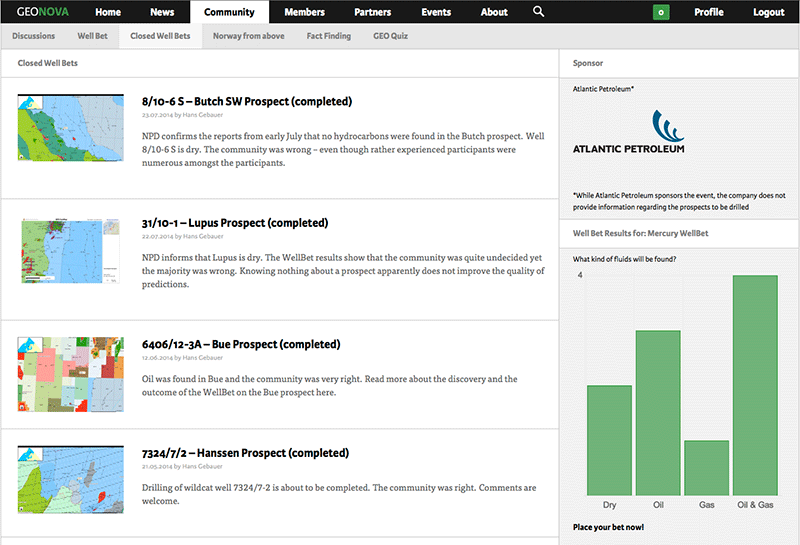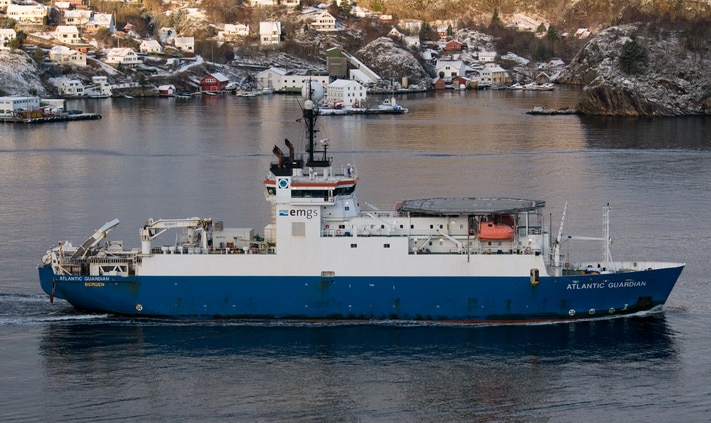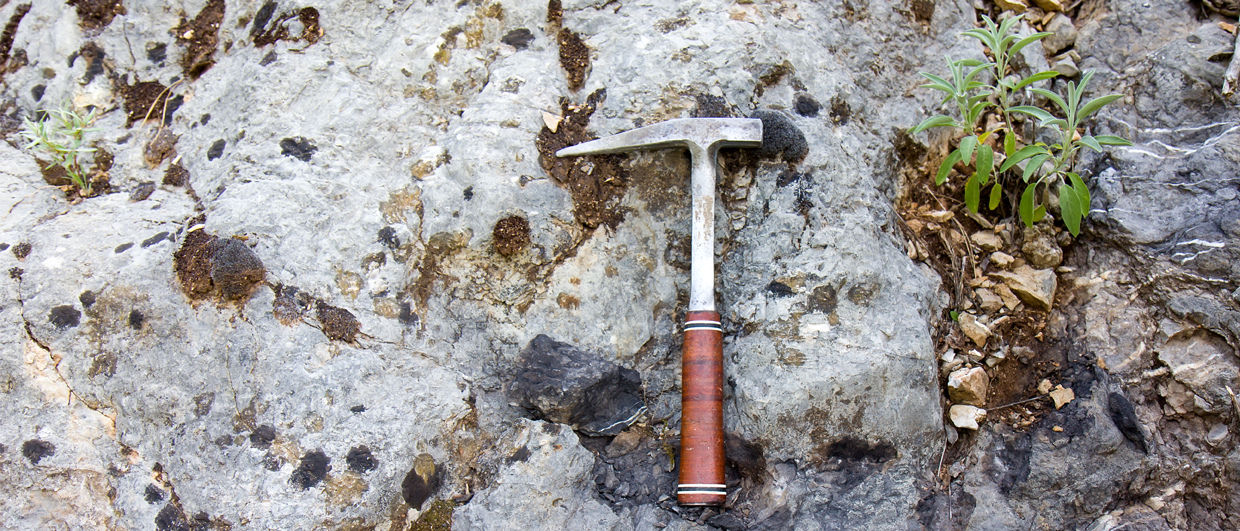In a recent experiment, university students and oil industry staff, including non-explorationists, tried to predict whether exploration wells on the Norwegian Continental Shelf would succeed or fail – and they predicted well! The experiment, named ‘WellBet’, is based on an established economic theory known as ‘prediction market theory’.
WellBet is about making an educated guess on the outcome of prospects to be drilled. It is run with geoscience students at the University of Bergen and a team from Atlantic Petroleum, where not only exploration experts participate but also team members who are typically not directly involved in the drilling process.
Both groups, students as well as employees, are doing surprisingly well in predicting the outcome of drillings. The questions that arise are, firstly, how is this possible, and secondly, is it useful for companies? Prediction markets utilise inputs from many different participants in game-like environments. In theory, the prediction gets better and better the more people place their bet. This phenomenon is also called “wisdom of the crowd”. Several scientific studies in different industries and markets have shown that combining the knowledge of many – via market-based aggregation mechanisms – can lead to surprisingly accurate results, even though the participating individuals are not accredited experts.
Extending WellBet
 The WellBet screen, where anyone can join the game and predict the outcome of a number of wells.In order to find out more, the WellBet experiment is now being extended, thanks to sponsorship from Atlantic Petroleum. Since May, members of the online geoscience community Geonova have been able to make their own predictions, bringing this fun experiment to a broader audience – again with remarkable results. All you need to do to participate is to create a user account. Each prospect is presented with a standard set of publicly available information. Your bet is immediately compared to the other bets. When the prospect has been drilled, and the result has been published in a press release, we can all see how the community prediction compares to the actual outcome.
The WellBet screen, where anyone can join the game and predict the outcome of a number of wells.In order to find out more, the WellBet experiment is now being extended, thanks to sponsorship from Atlantic Petroleum. Since May, members of the online geoscience community Geonova have been able to make their own predictions, bringing this fun experiment to a broader audience – again with remarkable results. All you need to do to participate is to create a user account. Each prospect is presented with a standard set of publicly available information. Your bet is immediately compared to the other bets. When the prospect has been drilled, and the result has been published in a press release, we can all see how the community prediction compares to the actual outcome.
So far, 10 WellBet prospects, all located on the Norwegian Continental Shelf (NCS), have been presented on Geonova and a total of 650 bets placed by members of the community. Most participants were in the age group of 40+ with a background in the oil and gas industry, although they indicated that they possessed little detailed knowledge about the actual prospects. The success rate for predicting technical and commercial discoveries as well as phase, i.e. three different parameters, is 53.33% which must be considered very good – and at the same level as the university students, whose score is currently at 54%. The overall discovery success rate – predicting technical and commercial discoveries but not the perhaps most difficult parameter, phase – is somewhat higher at 60%. Interestingly, the very important farm-in success rate – the rate at which the community predicts correctly a commercial success or commercial failure – lies at 70%. It is thereby at the same remarkably high level as the groups of geoscience students and oil industry employees of Atlantic Petroleum Norge.
The prediction market mechanism seems to be providing highly valuable information, although more data is needed to generate resilient results. WellBet could in fact prove helpful for small oil companies with limited capital available for drilling. It seems that taking input from a knowledgeable crowd into consideration can lead to better decisions.
It remains to be seen how the community will perform over time. Based on the results of the first bets in WellBet run in the three different groups, we can state so far that non-experts can have a relevant say in finding oil, and we should watch closely how WellBet accuracy develops with increasing numbers of participants. You can support this experiment and have lots of fun by placing your bets Geonova at www.geonova.no/well-bet.





